Minhaj Barna (1925-2011)
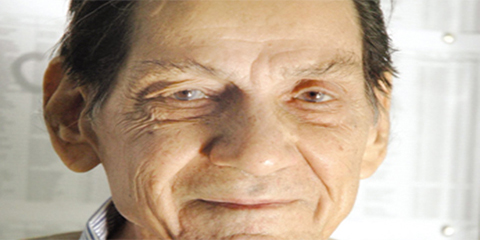
The death of Minhaj Barna in Rawalpindi at the age of 87 on January 14, 2011 marked the end of an era.Even journalists who had never met him in person were familiar with his name and his status as the founder of the trade union movement for newspaper employees in the country.
Barna commanded huge respect as the founder of the Pakistan Federal Union of Journalists and the All-Pakistan Newspaper Employees Confederation. He played a key role, in the early 1970s, in establishing a viable wage structure for newspaper staffers.
He was more than a union activist, however. From 1977 to 1988, he led the journalists’ movement against repressive policies of Gen Ziaul Haq with great courage. His leadership kept the media united.
A chant among his followers Tere saath marna, there sath jina Minhaj Barna became the battle cry throughout the encounter between him and censoring authorities.
In life he was considered a legend and his death grieved thousands of media personnel and press workers. To both, he was a great leader and always worked for their welfare.
He also published a book of poetry, Marsia: Chouthay Satoon Ka, elegy of the Fourth Estate which is more or less a sequel to Zameer Niazi’s study lamenting the curbs placed on free press by authoritarian governments.
Barna became interested in upholding freedom of speech as a student in pre-Independence New Delhi of Jame Millia. He joined the All-India Youth Federation and began to take interest in the Communist Party.
His career started with Urdu newspaper Inqilab at Bombay (now Mumbai). After Independence Barna came to Pakistan and started as a journalist anew by turning to English press and became famous as a fierce trade union leader upholding the cause of press workers and journalists.
At one time he led a 10-day strike against low wages during which no newspaper could be published. He led a hunger strike to keep alive the Pakistan People’s Party newspaper Musaawat but could not keep it from folding up. – The News; JournalismPakistan.com
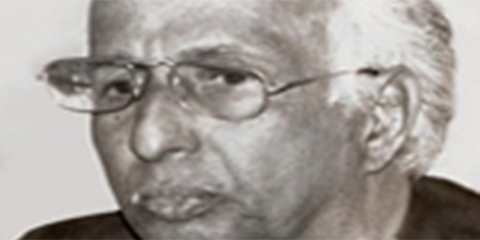
Nisar Osmani
Born in Allahabad in 1931, Mr. Nisar Osmani had his early education in India. Migrating from India soon after the creation of Pakistan, Nisar Osmani stepped into practical life as a school teacher in Bahawalpur.
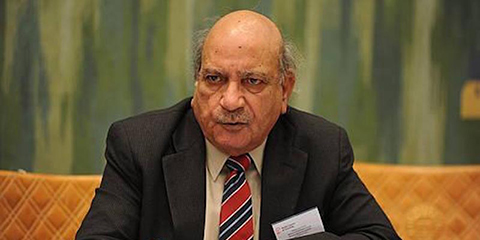
I A Rehman
A senior journalist and human rights activist, I A Rehman is known for his outspoken views. He served as editor-in-chief of The Pakistan Times from 1989-90. Since 1990 he has been serving as a director

Anjum Niaz (1948-2018)
Before joining journalism, Anjum Niaz taught at the Karachi American School and Pakistan American Council. A master's in English Literature from the Punjab University, she joined the
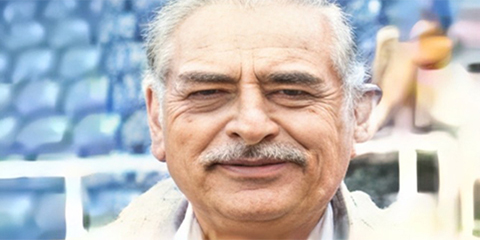
Farooq Mazhar
Farooq Mazhar was Pakistan's most prominent sports journalist, television commentator and former Editor of The News. He died on April 28, 2001 in Bahrain enroute to America after a short illness.

Maleeha Lodhi
Maleeha Lodhi obtained her Ph.D in Politics from the London School of Economics in 1980, having received her B.Sc (Econ) from the same institution in 1976. She taught Politics and Sociology at

Zakir Hussain Syed (1939-2013)
Zakir Hussain Syed, affectionately called Zak, was an internationally renowned sports administrator, broadcaster and journalist. Born in the town of Sialkot on November 1, 1939, Zakir had his initial schooling at Rawalpindi's Denny's High School.

Ardeshir Cowasjee (1926-2012)
Businessman, philanthropic and outspoken columnist, Ardeshir Cowasjee was regarded as an 'old guardian' of Karachi city. Cowasjee belonged to a well-known Parsi family of Karachi
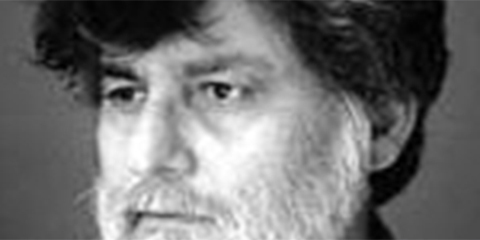
Zafaryab Ahmad (1953-2006)
Zafaryab Ahmad (1953-2006) was a journalist who made a name for himself as a trade unionist and a political activist. He worked in the dailies Dawn and the Frontier Post and the weekly Viewpoint.
Newsroom

How editors decide what not to publish on quiet news days
January 18, 2026 On slow news days editors withhold pieces lacking relevance, accuracy or public interest, and avoid publishing material that raises legal or ethical risks.

Siasat.pk shuts Islamabad office as pressure mounts
January 18, 2026 Siasat.pk has shut its Islamabad office after 8 years, citing pressure and the detention of journalist Sohrab Barkat that staff say made operations untenable.

Tennessee court expands media access to executions
January 17, 2026 A Tennessee judge ordered broader media access to executions, requiring curtains remain open during key procedures while safeguarding execution team identities.

IPI urges probe into smear campaign against Romanian reporter
January 17, 2026 Press freedom groups seek an impartial probe after Romanian reporter Emilia Sercan was targeted in a coordinated online smear campaign with harassment and threats.

Widow of Arshad Sharif alleges renewed harassment in Islamabad
January 17, 2026 Javeria Siddique, widow of Arshad Sharif, says unidentified people have returned to her Islamabad street asking about her, and she has contacted police.












